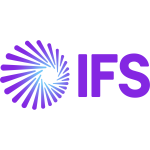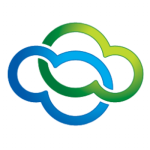Valuable Features
I personally find the Opportunities to be the most valuable aspect of the tool. It helps me keep a close eye on the business' pipeline. We've also developed a native project management solution on the Salesforce platform called Mission Control. We use this to track the scheduling and performance of all implementation projects. This is of great importance to our business in understanding our bandwidth and efficiencies. We also find the Case object to be of great value, including the email to case functionality that helps simplify the process for our clients when submitting support requests.
Improvements to My Organization
We run our entire business in the cloud and Salesforce.com sits at the heart of our solution stack. We have a subscription based model for our products, such as Mission Control, Mercury SMS and InteliMail. We've integrated Salesforce.com with eWay, an online payment gateway to automate our monthly billing process.
Room for Improvement
The main area that I feel could be improved is the performance of the Salesforce1 mobile application. I find it to be too slow to be of any real value whilst out on the road.
Use of Solution
I have been using the Salesforce.com CRM system for over 12 years. I first used it as a Marketing Manager for the company I was working for at the time. In the last six years, I've been running Aprika, a Salesforce.com Consulting Partner helping to implement the solution for clients in Australia.
Deployment Issues
We've implemented Salesforce.com for over 200 clients and we've never come across a requirement that could not be delivered on the platform.
Stability Issues
We've implemented Salesforce.com for over 200 clients and we've never come across a requirement that could not be delivered on the platform.
Scalability Issues
We've implemented Salesforce.com for over 200 clients and we've never come across a requirement that could not be delivered on the platform.
Customer Service and Technical Support
The standard Salesforce.com support process is very good. They also have a premier support option which provides a very quick response time. In addition to this, the community of users are extremely helpful and supportive to one another and using the success.salesforce.com website, you're always guaranteed someone will be able to help you out.
Initial Setup
We are a Salesforce.com Consulting Partner, so we're the team helping the client implement their required solution. Salesforce.com conducts regular, independent research which states a client that works with a consulting partner to implement the solution is 65% more likely to be successful.
Implementation Team
We have implemented Salesforce.com for over 200 clients, as you can imaging, there's been varying scales of complexity in the requirements ranging from a simple out of the box configuration through to solutions requiring a lot of customisation using Apex and Visualforce as well as integration with third party systems.
Pricing, Setup Cost and Licensing
I do hear that Salesforce.com licensing is expensive, but once clients start using the system and the light goes on in relation to understanding the power of the platform, they realise it's well worth the investment.
From a personal perspective, one of the key things Salesforce.com provides us is insight into our business that would be difficult to achieve otherwise. We're able to easily track conversion rates, budget performance, staff efficiency rates and many other key metrics that are important to our business.
Other Solutions Considered
12 years ago, I initially compared it to a number of other solutions through a tender process. We conducted our due diligence and Salesforce.com came out top by a long way. As a Consulting Partner, we typically see prospects comparing Salesforce.com and MS Dynamics. Generally, we see them evaluate the two products and in most cases, they'll establish Salesforce.com is the more powerful, flexible and scalable solution.
Other Advice
Don't hesitate - if you're looking at using Salesforce.com, you're on the right track. After a few months, you'll wonder how you managed without it. In terms of implementation, I would strongly recommend engaging a consulting partner, it doesn't have to be Aprika. They can bring real value add to the project and ensure the system is set up to support user adoption. Engaging staff from various parts of the business in the initial implementation is also a key ingredient to successful adoption.
Disclosure: My company has a business relationship with this vendor other than being a customer. Aprika holds three different partner accreditations with Salesforce.com.
Cloud Alliance Partner - we work with clients to ensure they successfully implement Salesforce.com within their own business
ISV Partner - we build our own applications on the Salesforce.com App Cloud, such as Mission Control, Mercury SMS and IntelliMail, which are available from the AppExchange
PDO Partner - we work with other ISV Partners who do not have the technicals skills to develop their business concepts. We provide the support these clients need to develop a solution on the App Cloud.















